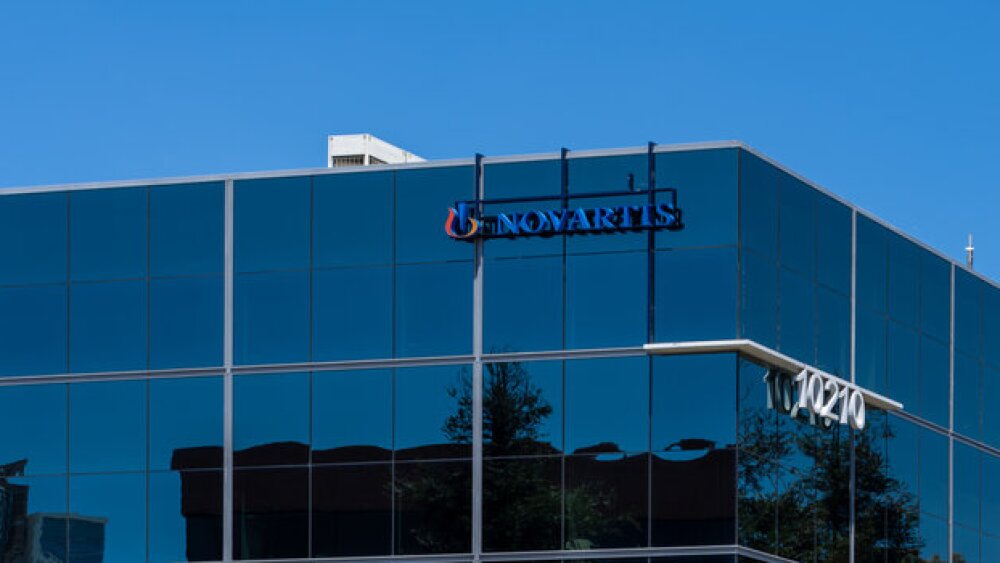The Swiss pharma’s Fabhalta, a Factor B inhibitor, is the first FDA-approved oral monotherapy for adults with the rare blood disorder paroxysmal nocturnal hemoglobinuria.
Pictured: Novartis’ building in California/iStock, JHVEPhoto
The FDA on Wednesday approved Novartis’ oral drug iptacopan, a Factor B inhibitor now to be marketed under the brand name Fabhalta, for the treatment of adults with paroxysmal nocturnal hemoglobinuria.
Designed to be orally available, Fabhalta is a small molecule inhibitor of Factor B, a key player in the proximal alternative pathway of the complement cascade. This mechanism of action allows it to temper activity of the complement system, which in paroxysmal nocturnal hemoglobinuria (PNH) prematurely destroys red blood cells, giving rise to the condition’s hallmark symptoms of anemia and thrombosis.
According to Novartis’ website, Fabhalta does not interfere with direct complement signaling through the classical and lectin pathways, enabling the body to still mount a defense against pathogens.
Victor Bultó, president of Novartis’ U.S. unit, called Fabhalta’s approval an “extraordinary moment,” particularly for patients with PNH, a rare and serious chronic blood disorder.
Fabhalta is a “new, effective oral medicine” that could allow PNH patients to “reset their expectations of living with PNH,” Bultó said, adding that Novartis will continue to assess Fabhalta in other complement-mediated diseases.
Wednesday’s approval was supported by data from the Phase III APPL-PNH study, which enrolled patients with residual anemia despite having undergone prior anti-C5 treatment. Twenty-four weeks after switching to Fabhalta, 82.3% of these patients demonstrated a sustained increase in hemoglobin levels even without transfusions, versus 0% in comparators who stayed on anti-C5 therapies.
Results from the Phase III APPOINT-PNH study, in complement inhibitor-naïve patients, also factored into the FDA’s decision. At 24 weeks, Fabhalta treatment induced sustained hemoglobin improvements without transfusions in 77.5% of these patients.
Both trials also established a favorable safety profile for Fabhalta, with serious adverse reactions developing in at most 5% of treated patients.
At the same time, Fabhalta’s label carries a boxed warning for an increased risk “of serious and life-threatening infections caused by encapsulated bacteria,” such as Streptococcus pneumoniae, Neisseria meningitidis and Haemophilus influenzae type B. Because of this risk, Fabhalta is only available through a restricted program under its Risk Evaluation and Mitigation Strategy.
Beyond PNH, Novartis is also developing iptacopan in IgA nephropathy (IgAN). In October 2023, the pharma announced that the Factor B blocker met the pre-specified interim primary endpoint of the Phase III APPLAUSE-IgAN study. Without providing specific data, Novartis said that iptacopan induced statistically significant and clinically meaningful reductions in proteinuria versus placebo.
Novartis is also preparing an FDA application for iptacopan in IgAN for potential accelerated approval in 2024.
Tristan Manalac is an independent science writer based in Metro Manila, Philippines. He can be reached at tristan@tristanmanalac.com or tristan.manalac@biospace.com.






